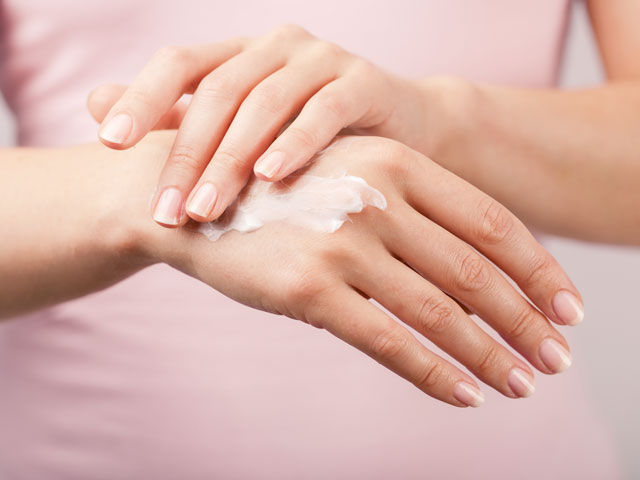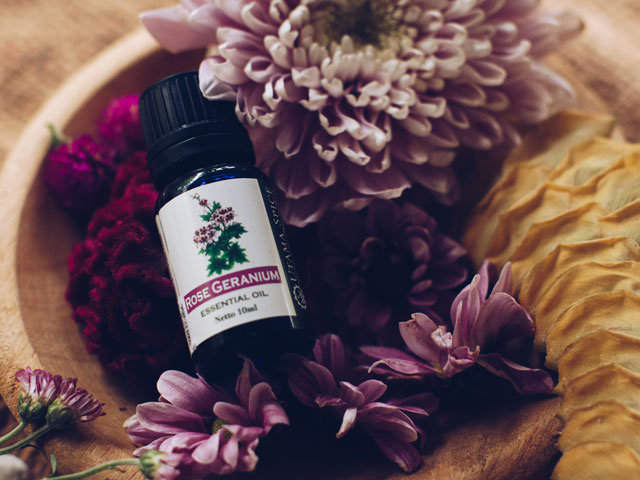So What IS the Difference Between Organic and Natural Skin Care?
We’ll let you know!
In our previous articles, we’ve discussed what natural skin care is, what some of the benefits are, some ways to get started making your own at-home natural skin care blends, and the best natural skin care brands and products to start using today. In this post, we’ll discuss what the difference is between organic skincare and natural skincare and answer some common questions people also ask about these differences.
But First, What is Natural Skin Care and What are the Benefits?

What Goes On Your Skin Goes In Your Body
Natural skin care means using products made of natural ingredients rather than chemical or synthetic based cosmetics products. The reason we advocate switching to a natural skin care routine is because of the fact that your body absorbs things through the skin. And you probably don’t want your body absorbing a bunch of chemicals or toxins, so that’s why it’s important to switch today.
The other half of the equation is that our body also excretes toxins through the skin by sweating. Unfortunately, these common cosmetics and beauty products can actually clog the pores, making it more difficult for this toxin-removal to take place. And with your skin being the largest organ, it’s not something we want to hamper.
So Many Skincare Benefits and Uses
As we’ve mentioned in our previous articles about Natural Skin Care Defined and Natural Skin Care At Home, there are plenty of ways you can use natural skin care products for a variety of benefits for your skin. Just Argan Oil can be used as a moisturizer, to treat acne, to fight wrinkles and the signs of aging, it can be used for exfoliation and wound healing, and it can be used to treat a variety of other skin conditions.

So natural skin care can be an effective, proven alternative to the skincare products you see on shelves and in commercials. And it can be better for you, your skin and the environment!
Natural Skincare for the Environment?
That’s right, even the environment benefits when you switch to a natural skin care routine. This is because the process required to make many of the synthetic skincare products releases toxins and chemicals into the air and water. This can harm the ecosystem, plant and sea life, and ultimately leech back into the water supply.
But natural skin care uses harmless, unprocessed ingredients found in nature, so the leftovers are just more natural ingredients. For instance, our Face & Body Clay is made of 100% pure Volcanic Ash, which is filled with nutrients and actually amazing for plant life. So that’s another huge difference when it comes to natural skin care vs typical cosmetics.

So What is Organic Skin Care and What’s the Difference Between that Natural Skin Care?
We decided to check with a few experts to hear what they have to say about organic skin care vs natural skin care, the differences and what to look out for:
The authors at BirchBox had this to say about the differences between organic skin care and natural skin care:
“What’s in a Label?
The difference between a label of “natural” versus “organic” comes down to regulation. “Certified organic” is a claim that’s heavily regulated by the USDA. To qualify, a product’s ingredients must contain absolutely no toxic pesticides, toxic synthetic herbicides, or chemical NPK fertilizers—and, in the case of animal products, no antibiotics or growth hormones.
“On the somewhat startling flip side, there is virtually no regulation around labels of “natural” or “all-natural.” In the most nefarious instances, products may simply contain plant-derived ingredients that are highly processed and potentially even harmful. Yikes.

“But the “natural” claim can be genuine. Botanicals like aloe, chamomile, shea butter, beeswax, and essential oils are all examples of natural ingredients with a ton of benefits for hair and skin—even when not technically organic. A product could also include a few truly organic ingredients, which would be denoted in the ingredients list, without being marketed as such.”1
We decided to go over to Byrdie next, to see what they said about the differences between organic and natural skin care:
“Natural
While the term isn’t regulated at all, not all products with the word “natural” on their labels are frauds. Your best bet is to study the ingredients. Remember that ingredients are listed from highest percentage to lowest, so aim to pick a product where synthetic ingredients are mainly at the bottom of the list, if included at all.
“Here’s where it gets a little confusing: The scientific names of some naturally occurring ingredients might sound synthetic. Sodium chloride is just sea salt, for example, and citric acid is a compound found in lemons and other citrus fruits. Not to fear—you’ll begin to recognize these with practice. Plus, as you’ll find out, there are other ways to ensure your product is green.

“Organic
This term—which means that ingredients are organically farmed—is regulated by the FDA, but here’s the hitch: A product only has to contain a certain percentage of organic matter to declare “made with organic ingredients” on its label. (This amount varies from state to state—in California, for example, it’s 70%.) Spotting a USDA Organic seal is ideal, since that means the product contains at least 95% organic ingredients.””2
The Difference Between Natural and Organic Skin Care
So as you can see, the simple labels of organic and natural can sometimes be a little misleading. It seems like the best way to go is to check the ingredients and do a little bit of research. Once you start learning what are natural skin care ingredients, you’ll start to recognize the ones that works best for you!
And if you can, there’s definitely no reason not to go with organic products. They’re safe from pesticides, and their farming supports a sustainable environment. Just remember, there are regions that don’t have organic accreditation organizations like the USDA, but this doesn’t mean that organic products can’t come from these regions!

Here at Utama Spice, a large part of our mission and vision includes adhering to the Balinese cultural concept of Tri Hita Karana, which commits us to respecting and working harmoniously with humanity, nature and the divine. As a business we understand the importance of the individual to maintain the health of the global village, so we strive to lower our impact on the environment. We do extensive research to support the local natural resource base and to enhance local farming skills in such areas as organic farming, bee farming and seaweed farming. These farming communities produce the raw materials for our products.
So when it comes to your natural skin care routine, go organic when you can! But most importantly, check the ingredients, read the labels and do just a little research to start finding out more about natural ingredients.

Once you’ve found some of the ingredients that you like, you can check out our post on Natural Skin Care At Home to learn more about the different kinds of oils you can start using to make your own natural skin care recipes.
If you’re looking for some great natural skin care products to get started with, check out our post on Best Natural Skincare Products to Start Using Today.
What are your favorite natural and organic skin care products? Let us know! Comment, Like, Share and Follow Us on Facebook, Twitter & Instagram!
Sources & Resources
- https://www.birchbox.com/guide/article/difference-between-natural-and-organic-grooming
- https://www.byrdie.com/natural-vs-organic-beauty-products
- https://search.proquest.com/openview/befe7b324f2fddb0f73b8d1eca26cde5/1?pq-origsite=gscholar&cbl=2046426
- https://www.emerald.com/insight/content/doi/10.1108/07363761111101930/full/html


